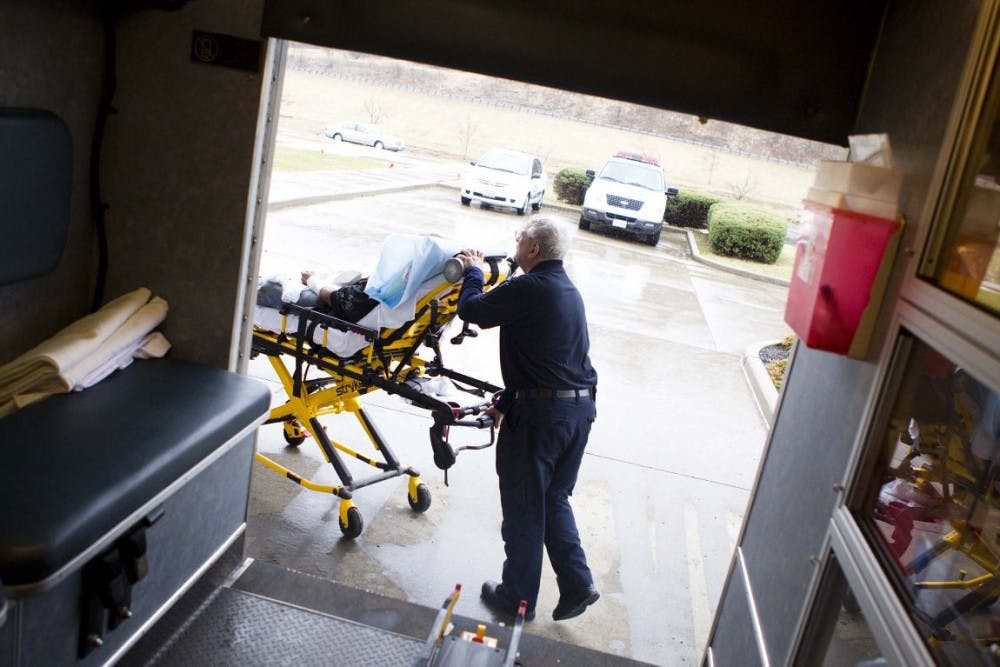When part-time Athens Emergency Medical Services staff call off or don’t schedule, the workload falls onto the full-time staffers — who sometimes work up to 36 hours of overtime a month.
Athens County EMS Chief Rick Callebs said while full-time workers have to come in when called, part-time work is optional.
“Our full-time people are scheduled a fixed amount of hours and there's not an issue there,” Callebs said. “With the part-time people, they kind of get to set their schedules around the other things they do, and we've had an ongoing issue where they don't work as much as we need them to work.
Callebs said of the 65 employees at Athens County EMS, 24 are part time.
Kayce Carrick, a lieutenant at the Athens County EMS, said the full-time workers have to work overtime because they legally cannot run less than five trucks in the county at any time.
“We cannot shut a truck down,” Carrick said. “We can't not provide service to the county. We've got to have one medic, at least, per truck, and at least five trucks on the road. We can never leave the county shorthanded.”
Despite having five trucks on the road and another truck on backup, each EMS team keeps very busy, Callebs said.
“We're busy a substantial amount of time,” Callebs said. “We have moments here and there where we're down to one truck in the whole county. On some occasions, we've had no trucks in the county.”
On average, full-time workers work anywhere from 48 to 72 hours a week, Carrick estimated. That doesn’t include the 24 to 36 hours every month in overtime from part-time worker absences.
“We end up getting overworked,” Carrick said. “We end up having to cover a lot of the part-time shifts in overtime.”
A small group of consistent part-time workers lessen some of the burdens, but many of them have their own full-time jobs, Carrick said.
“We have a core group that are absolutely fantastic,” she said. “There's a lot who don't schedule, and that's where we have the issue. They just aren't making the time and it becomes hard for us.”
According to a previous Post report, more than 50 percent of EMS workers in Athens used to be part time. Many workers have left the country seeking higher paying jobs elsewhere, and in 2015 the Athens County Commissioners raised the starting salary for EMS workers by 3 percent to increase staffing.
Commissioner Chris Chmiel said while the commissioners would consider creating more full-time positions to compensate for the extra work, they can only use a set amount of money to fund the EMS.
“The EMS is paid for through a levy,” Chmiel said. “We've got a certain budget, and we have to live within that budget.”






